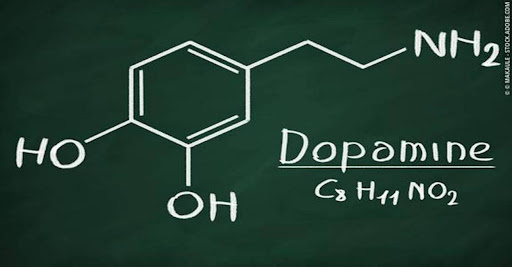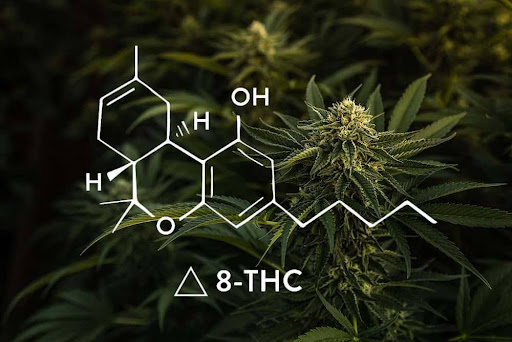According to the American Society of Addictive Medicine (ASAM), Addiction is a treatable, chronic medical disease involving complex interactions among brain circuits, genetics, the environment, and an individual’s life experiences. People with Addiction use substances or engage in behaviors that become compulsive and often continue despite harmful consequences1.
There has been a customary school of thought that Addiction is somehow related to drugs only, but it’s not a matter of fact. Addiction can be of any type, from drugs to behaviors; there can be an addiction to drugs like pain pills, nicotine, and caffeine and behaviors like gambling, lying, manipulation, and criminality.
As you may have observed, dopamine release and the reward system/pathway rush to mind when you hear the word addiction. As reported by Oxford Academia, brain imaging studies reveal that the release of dopamine from most addictive drugs is far higher than that of rewards that are more crucial for survival2.
The reward system, one of the fundamental components of the brain, evolved to encourage survival-related actions like feeding. Eating triggers the reward pathways to produce dopamine, a neurotransmitter that gives us a surge of satisfaction. This encourages you to eat again in the future. When engaging in everyday activities, the brain emits dopamine. However, when using drugs like cocaine or heroin or engaging in compulsive behaviors like eating, shopping, or gambling, the brain is forced to release ten times as much dopamine as it would naturally, which prevents the brain from reabsorbing the dopamine and prolongs the pleasurable experience unnaturally.

The chemistry of the brain is altered in many cases of severe or chronic drug abuse to an extent where dopamine levels fall during routine activities such as sex, favorite meal etc. The brain is being reset to correlate sensations of pleasure and reward with the expectation of extra pleasure and reward with the burst of euphoria that comes from drugs or obsessive activity in the setting of associative learning3.
Marijuana improves users’ Empathy
Recent research reveals that Marijuana increases empathy, which is the ability to understand and share another person’s feelings. Regular cannabis users “have a greater understanding of the emotions of others,” according to a study published in the Journal of Neuroscience Research. The study’s authors claim that these results “highlight positive effects of cannabis on interpersonal relationships and potential therapeutic applications.”
A team of neurobiologists from the National Autonomous University of Mexico observed 51 individuals who did not use marijuana and 85 individuals who did. Using the participants’ MRI pictures and the cognitive and affective empathy tests, the users were divided into 22 female and 63 male categories. The educational attainment of each group’s members was comparable. None of the study participants used psychopharmaceuticals or medicines with mental effects, cocaine, opioids, or other drugs that cause depression.
Subjects’ MRIs (Magnetic Resonance Imaging) revealed that marijuana users had greater connections around the brain responsible for feeling emotions in the body compared to non-users.
During the study’s questionnaire phase, those who used marijuana had noticeably higher proficiency in one of the four domains known as emotional comprehension. These abilities enable one to comprehend the feelings and motivations of other people. There was no difference in the abilities of users and non-users in the other three domains of empathy skills. Those three domains comprise:
The ability to share or tune into another person’s bad emotions is known as empathy for stress. Joyful empathy enables one to partake in the happiness and accomplishments of others. Taking a perspective or comprehending the viewpoints of others.
“The analysis of the subject’s empathic ability, assessing both cognitive and affective empathy,” the authors said of the written testing. The ability to empathize is broken down into distinct domains, or “subscales,” such as “the ability to put oneself in another person’s shoes,” “the recognition of emotions and impressions in others,” and “the ability to feel or be in tune with others’ positive and negative emotions.”

The anterior cingulate cortex (ACC) is a region of the brain that “is prone to the effects of cannabis consumption and is also greatly involved in empathy, which is a multi-component process that can be influenced in different ways,” according to the team of neuroscientists who were trying to explain the findings. The ACC mediates high-level cognitive processes like problem-solving and decision-making and psychological processes like social interaction, emotion, and empathetic reactions.
According to the study, “we believe that the differences shown by regular cannabis users in the emotional comprehension scores and their brain functional connectivity could be related to the use of cannabis.” This is given that the ACC is one of the main areas that possess CB1 [cannabinoid] receptors and is heavily involved in the representation of the emotional well-being of others.
The binding process between cannabinoid CB1 brain receptors and Δ9-tetrahydrocannabinol (THC), the primary psychoactive ingredient in cannabis, has been connected to cannabis dependency. As was previously mentioned, humans have CB1 receptors on their ACCs, which are where THC binds. With a high concentration of CB1 receptors, ACC is vulnerable to regular cannabis use, plays a significant role in empathy, and takes into account the favorable effects of cannabis on mood and the positive effects that have been recorded4.
References
- American Society of Addictive Medicine https://www.asam.org/quality-care/definition-of-addiction
- Oxford Academic https://doi.org/10.1093/actrade/9780199557233.003.0003
- Yale Medicine https://ym.care/5y4
- Journal of Neuroscience Research https://doi.org/10.1002/jnr.25252
- International Journal Of Molecular Sciences https://doi.org/10.3390%2Fijms19030833
- National Institute Of Health (NIH) https://www.ncbi.nlm.nih.gov/pmc/articles/PMC9119984/
- Science Reports (Nature.com) https://www.nature.com/articles/s41598-022-12202-8
- Research Gate https://www.researchgate.net/publication/375512088_Empathy-related_differences_in_the_anterior_cingulate_functional_connectivity_of_regular_cannabis_users_when_compared_to_controls
Similar Posts: Promoting psychological Well-being: Enlightening Note from Zaufishan Qureshi

Tayyab Manzoor is a student of pharmaceutical sciences studying Doctor of Pharmacy (PharmD) at the University College of Pharmacy, University of the Punjab, Lahore. His areas of study are intricate pharmaceutical sciences, from pharmacology to complex techniques in drug delivery systems and alteration of human physiology by drug interaction. He avidly reads Geopolitical History and the Diversity of the World.

